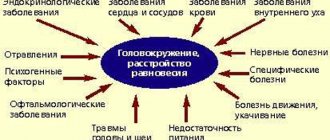Various fears are natural companions of human life. Some things frighten you with the real possibility of harming your health, others with the lack of control, and others with the unknown and misunderstanding. But there are certain fears that are caused by superstition. Fear of the number 13 is one of these phobias.
Scientific name of phobia
Triskaidekaphobia from the ancient Greek words τρεισκαίδεκα - thirteen and φόβος - fear, means a painful dislike of the number 13. There is also a synonym terdekaphobia. Oddly enough, it was this superstitious fear that took shape into a phobia with a separate name, although there are many more fears, equally irrational, passed on from generation to generation. Unfortunately, our society, for the most part, is not accustomed to think critically, and therefore the number of prejudices is enormous.
It is worth noting that in rare cases, highly educated, intelligent people also suffer from triskaidekaphobia. The explanation here may be as follows: internal contradictions tear a person apart, but have no way out. He is constantly in an anxious state, and this is extremely draining on the psyche. To save herself, she unconsciously “chooses” a way to control her condition, for example, by avoiding the number 13. They offered a ticket for the 13th seat on the train, but the person refused and asked for 14 - and that’s it, now he is calm. The meeting was supposed to be on the 13th, but he rescheduled it and now thinks that the result will be better, the anxiety has decreased.
Features of the development of a phobia of a mysterious date
The study of human phobias has led to the identification of many objects of fear. Some people are afraid of the number 13 and everything connected with it. This phenomenon in medicine is called triskaidekaphobia (literally translated from Greek as fear of the number 13). The name of the disease was introduced into psychotherapy by the American D. Dossey.
For an ordinary mentally healthy person, fears of mysterious dates and certain numbers can only bring a smile to their face. But the problem is much more serious than it might seem.
Causes and symptoms of triskaidekaphobia
Suffering from this disease most often are suspicious people who believe in the power of numbers and their influence on human life. Signs of this disease are detected more often in depressed, hyper-emotional and anxious people. The reasons may be different:
- Poor resistance to stress and susceptibility to anxiety due to poor state of the nervous system. The phobia is more often diagnosed in people suffering from alcoholism and drug addiction.
- Pathological diseases of the nervous system.
- Character traits that originated in childhood.
This phobia manifests itself in different ways. Some people prefer not to leave the house on an ominous date, postpone their affairs, etc. Others refuse to meet new people and communicate with loved ones. Even a simple coincidence with a route 13 bus or a seat in a movie theater causes anxiety and fear in people. How do the symptoms of paraskavedekatriaphobia manifest:
- headache and dizziness;
- attacks of nausea;
- increased heart rate;
- hard breath;
- muscle weakness or tension.
Because of their fears, people become emotionally tense and unpredictable. The influence of stress can be so strong that a person is capable of committing an inappropriate act or even losing consciousness.
Manifestations
Fear of the number 13 manifests itself as irrational avoidance. In extreme cases, if it cannot be avoided, a terdekaphobe may feel physical discomfort, even nausea, due to increased anxiety. This phobia is especially widespread in the West, in America and Germany. But it is worth noting that excessive concern for people who actually suffer from phobias (there are not very many of them) contributes to the emergence of unnecessary prejudices among others.
In the States, many hotel-type establishments prefer not to number 13 floors and rooms. To do this, use the designation 12A, or behind the 12th button in the elevator, the next one is the 14th. Naturally, this forms certain stereotypes in children, which can develop into superstitions and, to an extreme extent, into a phobia of the number 13.
Well-known triskaidekaphobes, for example, Angel Nieto (Spanish motorcycle racer, 13-time world champion) preferred to say that he had 12+1 victories in world championships, and Arnold Schoenberg (Austrian composer) made a deliberate mistake in the title of his last opera, just for the number the letters did not equal thirteen.
As for Schoenberg, his life was simply a classic example. He was born on September 13, was madly afraid of his 76th birthday because the sum of the numbers is 13, and died on July 13, exactly when he was 76. According to legend, he had a premonition of death all day and died 13 minutes before the 14th. . What is this, no matter how mystical! If you think a little, it is not difficult to understand that there was probably more than one Schoenberg who was born and died on the 13th of the month at the age of 76. However, the composer's prejudice regarding the number 13 helped to form a legend that sinks into the soul of every suspicious person.
Causes
Triskaidekaphobia is a religious prejudice, however, the reasons for its occurrence have not yet been clearly elucidated. Most often among the versions, a biblical story is recalled that describes the last meal of Jesus Christ - the Last Supper, at which Judas Iscariot, who later betrayed the teacher, sat thirteenth at the table.
In the 19th century in Europe there was a belief that if 13 people gathered at the dinner table, one of them would die within a year. After this, a tradition arose that involved inviting an additional fourteenth guest or even seating a mannequin at the table.
In addition, some argue that the fear of the number 13 is provoked only by the fact that the number is greater than 12, which is sacred to many religions. Hence the name “devil’s dozen”, which has a negative connotation. If we rely on Christianity, then there is a belief that the thirteenth angel is Lucifer. Norse mythology also gives some explanations for why the number 13 is "bad" - the thirteenth god in the pantheon was Loki, personifying deceit and cunning. In the realm of the occult, the symbolism of the number is also confirmed - the 13th Tarot card depicts “death”.
Why are people afraid of the number 13?
The fear of the number 13 is closely intertwined with historical events, as well as famous adaptations of horror films. The fact is that the current situation around this number is partly invented and “tied” to modern literature and cinema. These numbers have no connection with reality. Many experts have been trying for years to find evidence of the influence of a single number or Friday the 13th on human destiny. Historians believe that it was on this day, in the 14th century, that Philip IV ordered the start of a legal battle against the Templar Order. According to historical data, members of the order were subjected to painful torture and inevitable execution.
These are the only facts that have received at least some confirmation from various sources. Only religious figures add fuel to the fire. But their evidence is unclear and is not supported by anything other than their own faith. The fear of Friday the thirteenth is just an “attached” stereotype that not many people can correctly perceive today.
It is believed that it was on Friday the 13th that the trials against the Templars were launched
Religion and folk beliefs
Religious leaders also have their own point of view about the ominous figure. There is information in both Christian scriptures and pagan ones. The most interesting information is:
- Christ was crucified on the fifth day of the week (Friday);
- Judas Iscariot, the betrayer of Jesus, was the 13th apostle;
- Satan – 13th angel;
- in Scandinavian mythology, the thirteenth god Loki started a war with other gods.
There is also a popular belief that on Friday the thirteenth, witches hold a Sabbath. Such myths are common among the Slavs. In Europe and around the world, there are also many demonic folk beliefs in relation to the fifth day of the week and the number 13. So, in England there is a belief about a missing ship called “Friday”, and in Italy on November 13, 1868, the composer Rossini died, who all his life considered the number 13 to be devilish and Friday to be a bad day.
How to overcome your fear of the number 13
Despite the fact that the fear of the number 13 is called triskaidekaphobia, you need to start fighting it as with ordinary superstitions. And for this you need to develop, read books, travel, communicate with people who are smarter than you. The development of critical thinking comes with experience, knowledge, understanding and acceptance of pluralism.
If you want to get rid of your phobia of the number 13 and started by reading this article, then you are on the right track. Find out the maximum amount of information about your fear, understand the origins of the formation of prejudice. It often turns out that a person is susceptible to it simply because he is used to it. He had never thought about or explained to himself the reason in his life. By thinking that there is no reasonable evidence, you change your attitudes and gradually get rid of obsessive fear. Regulating your thinking is in your hands.
It is also important to understand that a Tricksydecaphobe sets himself up for negativity as soon as he encounters the number 13. He will definitely associate all his troubles on the 13th day of the month with the date, although he may not even attach any significance to troubles that happened on other days. The brain, alarmed by the painful anticipation of problems, will isolate even small negative events from the environment and skip the positive ones.
Psychologists recommend trying to consciously choose the number 13 in life for some time and monitoring what is happening. Stop reading at chapter 13, add 13 songs to the playlist, meet your neighbors from the 13th floor and go visit them. If you evaluate the events impartially, you will notice that no special troubles are happening to you in connection with this.
A frequent accompaniment of superstitions are rituals that seem to “cancel” the action of omens. If you know that you also have any rituals with your fear of 13, then it is worth considering whether this is a sign of obsessive-compulsive disorder.
By and large, triskaidekaphobia rarely causes serious trouble for a person. Well, he won’t buy the 13th apartment, in the 13th building, on the 13th floor, if it makes him feel better. All these are not such oppressive prejudices. However, we mentioned at the beginning of the article that a pronounced fear of numbers, constantly seeing them everywhere: price tags, car license plates, house signs is a sign of neurosis. In this case, it is recommended to visit a psychologist to identify your internal problems and then get rid of them.
How to get rid of the fear of Friday the 13th
Combating a phobia can be effective both through self-therapy and with the help of a psychologist. The main thing is to force yourself to think rationally, because all thoughts about a mysterious devilish number or date are false and invented. They have no proven basis. This goal is set by a qualified specialist working with a patient. Visits to the doctor's office, conversations with the patient and further therapy are based on identifying fear and finding ways to control it.
Psychologists use various methods to combat the fear of mysterious numbers. Neurolinguistic programming is the most popular.
Sometimes hypnosis and cognitive behavioral treatment may be needed. The choice of method depends on the patient’s condition and the doctor’s qualifications. Most often, the symptoms of a phobia cease to bother the patient after 5-10 sessions.
A qualified psychologist will help you get rid of your phobia
Other number phobias
Among other well-known fears of numerals, it is worth recalling hexakosiohexekontahexaphobia. This amazing word means fear of the number 666, also called the number of the beast. Just like the fear of 13, it is a religious prejudice characteristic of people who consider themselves Christians. In China, on the contrary, six is a “lucky” number, therefore three sixes do not frighten representatives of Eastern cultures at all. In Russia, there are known cases when, due to superstition among the masses, transport routes with the numbers 666 were canceled. In the occult environment, the number is actively used along with other satanic paraphernalia.
Tetraphobia is the fear of the number 4. This superstition, unlike those described above, is widespread in East Asia, and is practically absent in the West. The answer here is very simple - fear is associated with the similarity of the pronunciation of the Chinese character meaning four and death. Everything we said about the number 13 in the West (not using the 13th floor in hotels to accommodate guests, avoiding numbering on houses, etc.) is present in Eastern countries in relation to the number 4.
There is also the concept of arrhythmophobia, which means an anxious attitude towards any individually significant number.
Symptoms
Manifestations of this fear can be emotional, mental or physical. A phobic person has a constant film or negative footage in his head.
- Triskaidekaphobe will try to avoid everything associated with this number.
- He experiences deep anxiety at the thought or sight of the number 13.
- Often, due to fear, a person cannot function normally.
- He experiences one or more of the following: fast heart rate, shallow breathing, chest pain, fainting, trembling, urge to cry, scream or hide, etc.
- The person is afraid of having a panic attack, which may cause him to lose control and embarrass himself.
conclusions
Fear of the number 13 is irrational and unfounded, having its origins in religion and mythology. Like all superstitions, it arises from a lack of critical perception of information, however, it can also be a symptom of some psychological or even mental disorder. But most often the reason is that people tend to accept a variety of statements on faith without doubt. I would like to remember the above-mentioned Arnold Schoenberg - just think how many 13ths he lived through before he died on one of them!











